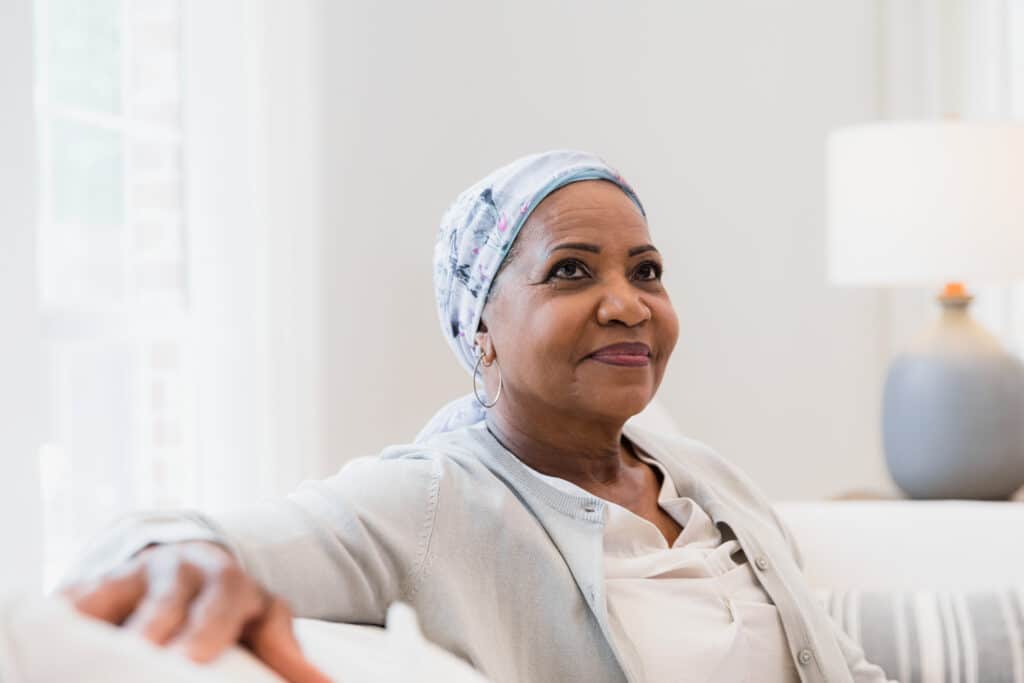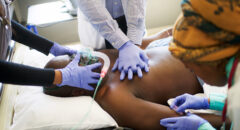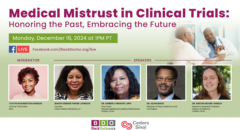
Patient enrollment in cancer treatment trials is 7.1 percent, higher than historical estimates, according to a study published online April 2 in the Journal of Clinical Oncology.
Joseph M. Unger, Ph.D., from the Fred Hutchinson Cancer Center in Seattle, and colleagues provided contemporary estimates of clinical trial participation among adults with cancer.
The analysis included a national sample of accreditation information submitted by the 1,200 Commission on Cancer programs, which represent ≥70 percent of all U.S. cancer cases.
The researchers found that the overall estimated patient participation rate in cancer treatment trials was 7.1 percent. Participation was also seen in a wide variety of other studies, including biorepository (12.9 percent), registry (7.3 percent), genetic (3.6 percent), quality-of-life (2.8 percent), diagnostic (2.5 percent), and economic (2.4 percent) studies.
For treatment trials, enrollment occurred in National Cancer Institute-designated comprehensive cancer centers (21.6 percent), academic (non–National Cancer Institute-designated) comprehensive cancer programs (5.4 percent), integrated network cancer programs (5.7 percent), and community programs (4.1 percent). Just over one in five patients participated in one or more cancer clinical research studies (21.9 percent).
"Contributions of adult patients with cancer to clinical research is more common than previously understood," the authors write.
What are cancer treatment trials?
As BDO has previously reported, cancer treatment trials (also called clinical trials or clinical research trials ) are cancer research studies with human volunteers to answer specific health questions. Cancer treatment trials are usually the fastest and safest way to find treatments that work for cancer and to improve the quality of life in people with cancer.
Interventional trials determine whether experimental treatments or new ways of using known therapies are safe and effective
under controlled environments. Observational trials address health issues in large groups of people or populations in natural settings.
How many Black people participate in cancer treatment trials?
The number of Black people participating in cancer clinical trials in the US is significantly lower than their representation in the general population. Here's some data to illustrate the gap:
Studies show Black Americans make up only around 8.5 percent of participants in oncology (cancer) trials from 2010 to 2021, while comprising roughly 14.6 percent of the United States population. Another source indicates that participation rates can be even lower in specific cancer types. The median enrollment percentage of Black Americans in trials for multiple myeloma was just 4.5 percent.
Why should you participate in a cancer treatment trial?
Cancer disproportionately affects Black Americans. They experience higher rates of some cancers and have a lower survival rate compared to other racial groups. Clinical trials, which test new and promising cancer treatments, offer a chance to improve these outcomes. Here's why participation in these trials is crucial for the Black community:
Advancements in cancer care for Black Americans and everyone else
Traditionally, clinical trials haven't reflected the diversity of the population they aim to serve. When Black people are underrepresented, the effectiveness and safety of new treatments for this specific group remain unclear. By participating, Black Americans contribute valuable data that helps researchers develop treatments effective across different ethnicities, ultimately leading to better cancer care for everyone.
Improved personal cancer outcomes
Clinical trials offer access to cutting-edge treatments that might not be readily available to the general public. These treatments could potentially be more effective than standard options, leading to better participant outcomes. While there's always a chance of receiving a placebo (inactive treatment) in some trials, all participants receive close monitoring and regular doctor visits during the process.
Addressing specific needs within the Black Community
Cancers can respond differently in various populations due to genetic and biological factors. Increased participation by Black Americans allows researchers to identify and address these variations. This knowledge can lead to the development of targeted therapies that cater to the specific needs of Black patients, ultimately improving their chances of successful treatment.
Building trust and empowering the community
Historical mistreatment in medical research has understandably led to some distrust within the Black community. Active participation in clinical trials can help rebuild trust by fostering open communication with researchers and healthcare providers. Additionally, involvement in research empowers Black communities to take an active role in shaping our health care future.






